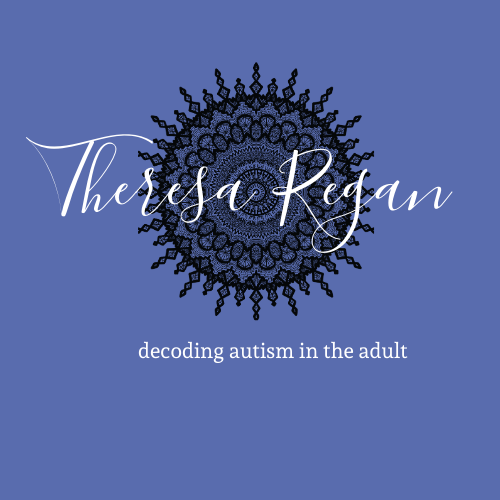Autism and Misdiagnosis: Personality Disorders
Description
Join Dr. Regan for the second in this series on autism misdiagnosis. This episode focuses on how often and why autism may be misdiagnosed as a personality disorder. Although there are 10 personality disorders outlined in the DSM-5, Dr. Regan focuses on two in this episode: borderline personality and narcissistic personality.
Netherlands study of over 1000 autistic individuals
Italian study: misdiagnosis
Norway case study Borderline Personality Disorder misdiagnosis
Recognizing dysregulation on the autism spectrum: podcast episode
Dr. Regan's Resources
New Course for Clinicians - Interventions in Autism: Helping Clients Stay Centered, Connect with Others, and Engage in Life
New Course for Clinicians: ASD Differential Diagnoses and Associated Characteristics
Book: Understanding Autism in Adults and Aging Adults, 2nd ed
Audiobook
Book: Understanding Autistic Behaviors
Autism in the Adult website homepage
Website Resources for Clinicians
Read the episode transcript --
1
00:00:07,070 --> 00:00:08,390
Hello everyone.
2
00:00:08,400 --> 00:00:12,770
This is Dr Theresa Regan joining you for the podcast,
3
00:00:12,780 --> 00:00:14,560
autism in the adult.
4
00:00:15,800 --> 00:00:18,180
I am a neuropsychologist.
5
00:00:18,190 --> 00:00:24,480
I specialize in understanding how the brain impacts personality emotions,
6
00:00:24,480 --> 00:00:26,720
behavior and thinking skills.
7
00:00:26,730 --> 00:00:38,440
I'm a certified autism specialist and the director of an adult diagnostic autism clinic in central Illinois and I'm the parent of a child on the spectrum.
8
00:00:39,400 --> 00:00:49,180
You are joining us for the second episode of a series we're doing on misdiagnosis for those who are on the autism spectrum.
9
00:00:50,210 --> 00:00:53,070
If you did not listen to the first episode,
10
00:00:53,070 --> 00:00:54,890
I really encourage you to do that.
12
00:00:55,670 --> 00:01:04,100
There are foundational things that I think will really be illuminating and that I'm not going to be repeating in this episode.
13
00:01:05,230 --> 00:01:06,550
For today's episode,
14
00:01:06,550 --> 00:01:15,940
we're going to focus about when the misdiagnosis has to do with the category of personality disorders.
15
00:01:17,120 --> 00:01:17,340
Now,
16
00:01:17,340 --> 00:01:34,990
personality disorders originally really focused on the impact of the environment and early life experiences and parenting and the development of the personality structure.
17
00:01:35,650 --> 00:01:55,910
And when I was in graduate school back in the 90s there was a focus on the fact that there were some studies coming out suggesting that some of the personality disorder categories actually had some influence in genetics.
18
00:01:55,910 --> 00:02:06,170
So this was through adoptive studies and looking at the personality traits of adopted Children as compared to their biological parents.
19
00:02:07,020 --> 00:02:31,810
So that at the time was actually news because the personality theories that dominated the literature had a lot to do with parenting and that personality was a learned experientially based um long term way of interacting with the world.
20
00:02:32,890 --> 00:02:42,420
Now today a lot of the literature explaining that personality disorders are likely caused by multifactorial issues.
21
00:02:42,430 --> 00:02:49,460
So issues of biochemistry and genetics and experience are more prominent.
22
00:02:49,470 --> 00:03:10,390
So the original foundations of personality disorders being in that theory about early life experiences and of course autism being in the category of physically based in the neurology of the individual and really impacted by the genetic code.
23
00:03:11,350 --> 00:03:15,850
There are three clusters of personality disorders,
24
00:03:15,850 --> 00:03:17,060
cluster a, b, and c.
25
00:03:17,670 --> 00:03:25,220
And there are a total of 10 conditions listed in the current diagnostic manual.
26
00:
More Episodes
Join Dr. Regan for the fifth episode of the Lifespan of a Household series. Today's episode focuses on topics important to autistic individuals who are parenting young children.
Autism in the Adult website
Resources for professionals
Video Visits
Video Courses
Published 10/19/24
Join Dr. Regan for the 4th episode in the Lifespan of a Household series. Today's episode focuses on topics important to the autistic individual who is preparing for parenting.
Autism in the Adult website
Resources for professionals
Video Visits
Video Courses
Published 10/06/24
Published 10/06/24


